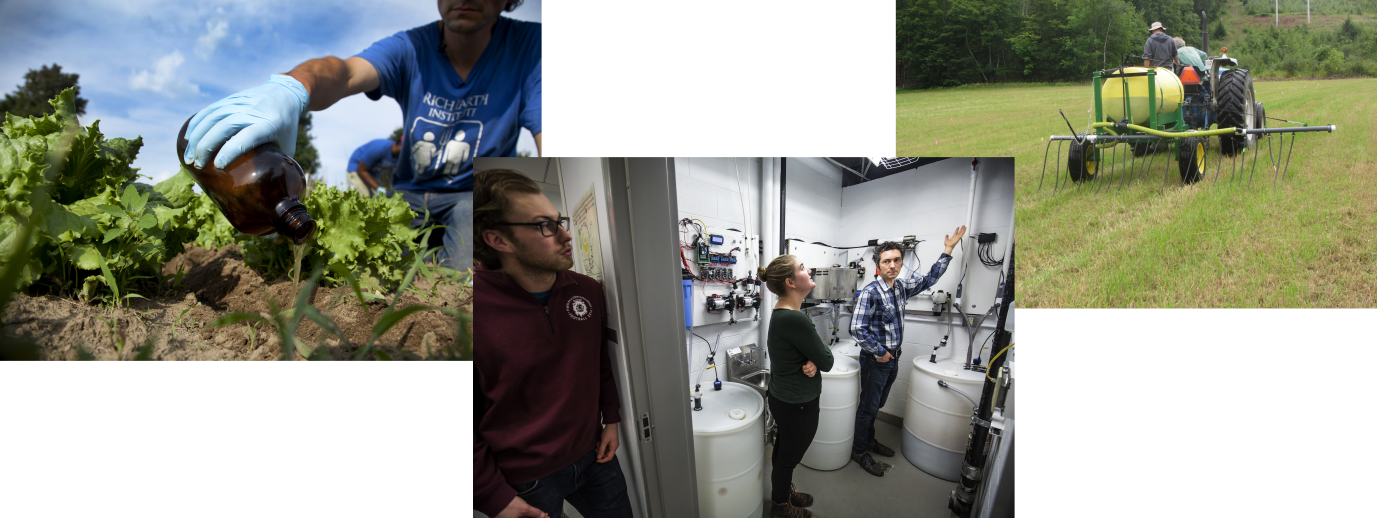Separating urine at the source to create sustainable fertilizer
Faculty advisors: Nancy Love, Krista Wigginton
PhD students: Lucinda Li, Enrique Rodriguez
Master’s student: Nicholas Lowe
Undergraduate students: Kensey Dahlquist, Harrison Suchyta

As water scarcity continues to be a global challenge, we must explore various pathways to close the water consumption cycle at the nexus of food, water, and energy systems. Consequently, the water sector has begun to incorporate nutrient recovery into wastewater treatment processes. One technology to consider is urine diversion or the separation of the human waste stream into its liquid and solid components. When separated, the nutrients in each component can be processed into fertilizer components. Use of urine-derived fertilizers (UDFs) can reduce the energy and water demands of phosphorus mining and the Haber-Bosch process, which fixes atmospheric nitrogen into ammonia. Urine diversion also results in a concentrated waste stream from which contaminants can be more effectively removed.
Although urine diversion is not novel, it is a foreign idea to many communities. One of which is Switzerland, where the concept has been studied to determine the feasibility of implementing the technology on a large scale. Some challenges that were identified include public perception of using urine as a fertilizer, understanding the fate and removal methods of pharmaceuticals and viruses in the urine, and the environmental impacts of applying UDFs.
The goal of the INFEWS (Innovations at the Nexus of Food, Energy and Water Systems) urine project is to expand on previous studies with four objectives: 1) recover nutrients efficiently into the fertilizer product, 2) reduce fertilize product volume, 3) maintain/develop product aesthetics, and 4) remove contaminants from urine. There are two approaches to achieve these goals: technical experiment work to assess the feasibility and energy requirements of various technological combinations to create the UDF and an assessment of human attitudes toward the application of UDFs. The UDF products have been tested in field trials comparing UDFs, synthetic fertilizer, and no fertilizer. Future work of the project includes assessing the impacts of UDFs on soil health, assessing virus persistence in urine, and understanding the fate of pharmaceuticals in urine.
Contact: [email protected], [email protected]
